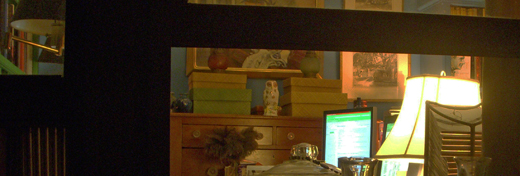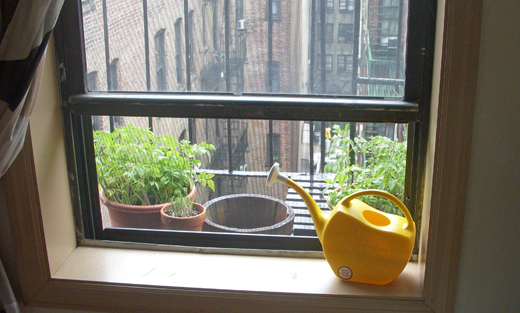
It was a nice out-and-about day. The out-and-about part lasted for about four hours. First, I had two neighborhood errands. Never mind about them. Then, the Museum. After the Museum, I stopped in at Crawford Doyle for a copy of The New Valley, Josh Weil’s triptych of novellas (lovely phrase; everyone’s using it; and especially resonant after a stroll through the Museum’s Netherlandish gallery), and then walked down 81st Street to Willy’s, my barbershop.
Since the wait wouldn’t be long, I sat down and started in on “Ridge Weather,” the first of the novellas. It was not possible to take the measure of the prose, though, because a radio was blaring “Baby Love” and bringing back memories of a Supremes dance party at an off-campus house in South Bend in 1969, um, forty years ago. Also there was a futbol game on the television. In the barber chair, I did not attempt to read; my spectacles get in the way.
There are two barbers at Willy’s, and the customer in the other chair was — what? Not fully grown but beginning to be full of it. Baby fat lasts longer in these precincts than it does elsewhere, for obvious reasons, but that is all that the kid was carrying: it was entirely in his face. He rather aggressively spoke Spanish with the barber, and if that made me wince a little it made me smile a lot. At the end of his trim — I could see everything thanks to mirrors in front of and behind me — I got to see the application of this mysterious mousse that I hear about, and that makes me wonder what the men who wear it are thinking. (Young ladies have informed me that it is a lot more like Brylcreem than anything I’d ever put in my hair — if I had any.) I wish you could have seen the kid puff up when he asked for “five dollars back”; among the many other things that he was new to was the swagger of tipping. Then there were the handshakes and the hasta lew-ego!
(I was so much worse at his age — but I don’t want to sound competitive here.)
Then to Agata & Valentina, for a chunk of reggiano parmegiano. Somehow, the bill came to $123.63. I guess I did buy a few other things, among them a hunk of salami — well, more like the stern of a salami — for (let’s see here) $36.40. Just an ounce or two shy of three and a half pounds — not bad! As Kathleen said, salami lasts forever, and, yes, it does. The end isn’t always as pleasant as the beginning, but it does last. I’ll let you know when it’s finished, but not my age and weight.
There were two shows to see at the Museum — two that I hadn’t seen, that is. And can you believe that I read about one of them in The Eonomist? That was strange. The Times must have written it up, and I must have missed the write-up. Pen and Parchment: Drawing in the Middle Ages. I won’t say much about this breathtaking show now, except this: while the drawings reproduce nicely in the catalogue, what does not reproduce is the ninth-centuryness of the drawings that are that old. The Museum may be full of items that are far older than c 840 CE, but, as books go, c 840 CE is old. Over a thousand years old, and there it is, under glass, looking as crisp as if it were bound up yesterday, and there I am, standing in a city that didn’t exist for most of the intervening millennium, and in a building that most of the people around me probably took for antique.  Â
And the drawings are amazing. Sure, you’ve seen stuff like it before — but not quite like it. There’s an Ascension in the margins of one book that’s really quite Baroque.
The other show was a modest collection of photographs from the Second Empire. It’s astonishing, what can happen in twenty years. I feel that nothing half so dramatic as the rise and fall of Napoleon III and the recreation of Paris has occurred since 1989. Allowing, that is, for their lack of telephones, light bulbs, central heating and (for all but a few early adopters) indoor plumbing. The Second Empire was definitely the Western World’s first caffeinated jolt of modern times.
When I got home, I cleaned up and wrote my head off. I do wish that Eric Patton would publish his fascinating and enviable posts on Thursdays and Fridays, because reading them (which can’t be helped) on Daily Office days cuts into the dutiful consumption of feeds.



















